Common Accounts designs an eco-friendly funeral for the digital age
Design studio Common Accounts imagines the funeral of the future, where liquefied bodies are used to fertilise plants and flowers, and social media accounts generate a virtual afterlife.
Death needs a redesign, said Common Accounts founders Igor Bragado and Miles Gertler, to respond to global concerns about the environment, as well as the rise of digital communication.
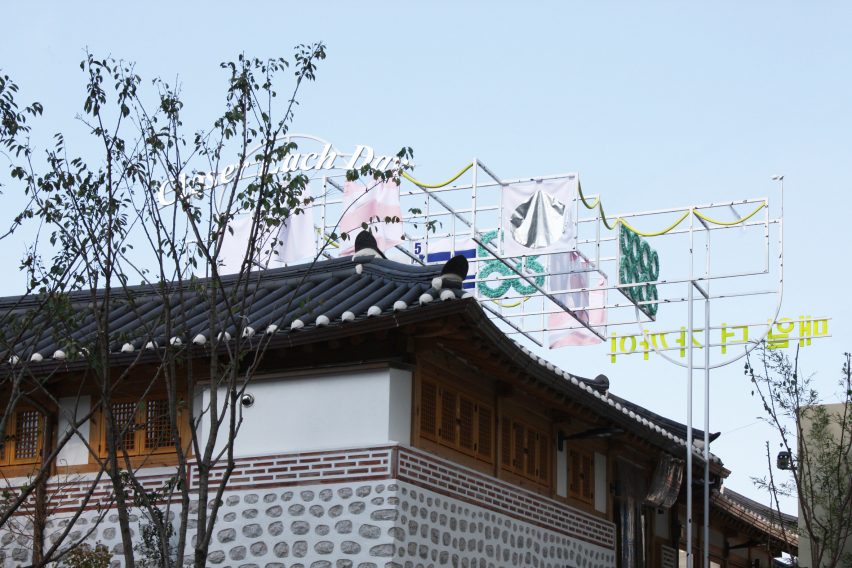
The pair believe that modern technologies could be used to create new, eco-friendly funeral rituals.
"Burial and cremation, as we know them, are dead," explained Gertler.
"Today's city can no longer afford to keep the material business of death at arm's length, given diminishing land availability, environmental concerns, and the prospect of your digital afterlife."
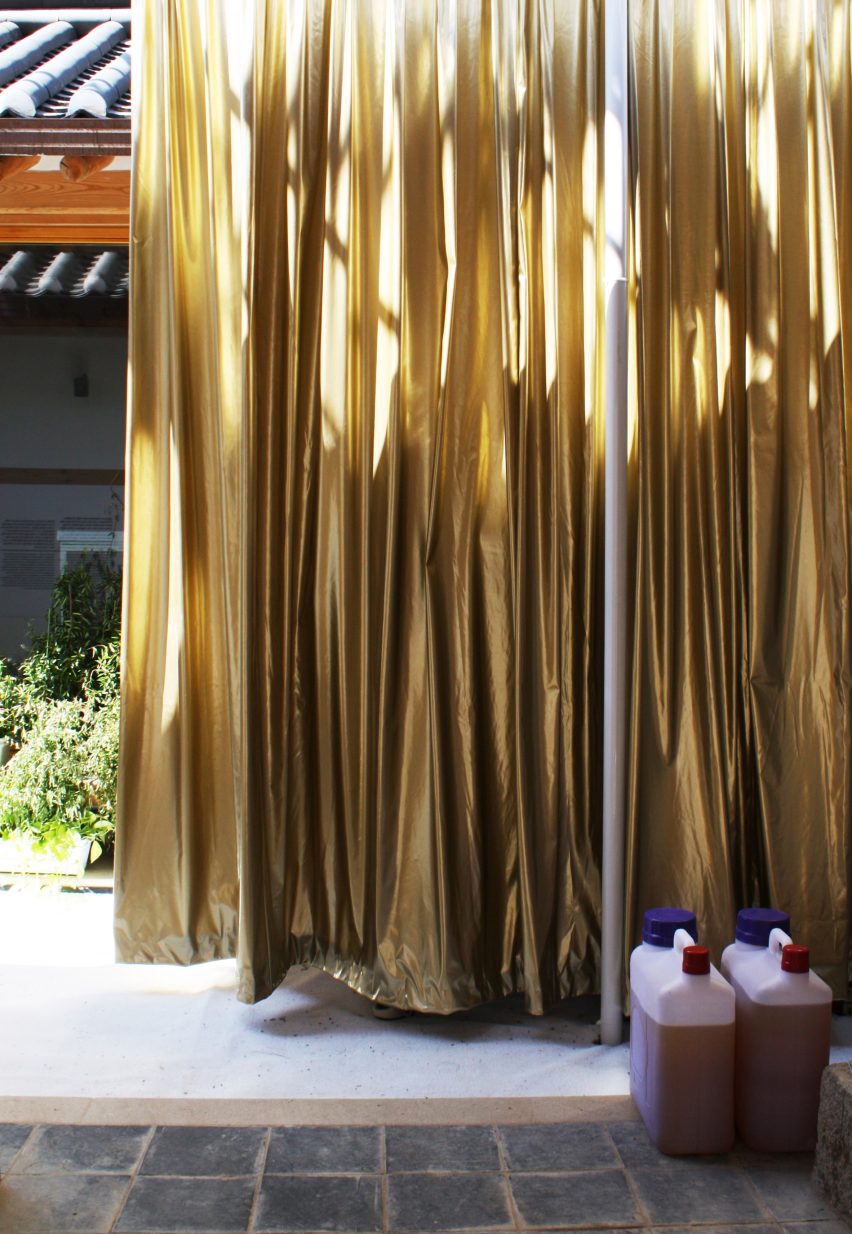
Bragado and Gertler have produced a short film of their proposal, Three Ordinary Funerals, which is premiering at the exhibition (Re)design Death at the Cube Design Museum in the Netherlands.
It shows a ceremony taking place inside a prototype funeral home, which the pair built for the Seoul Biennale of Architecture and Urbanism in 2017, inside a traditional Korean hanok house.
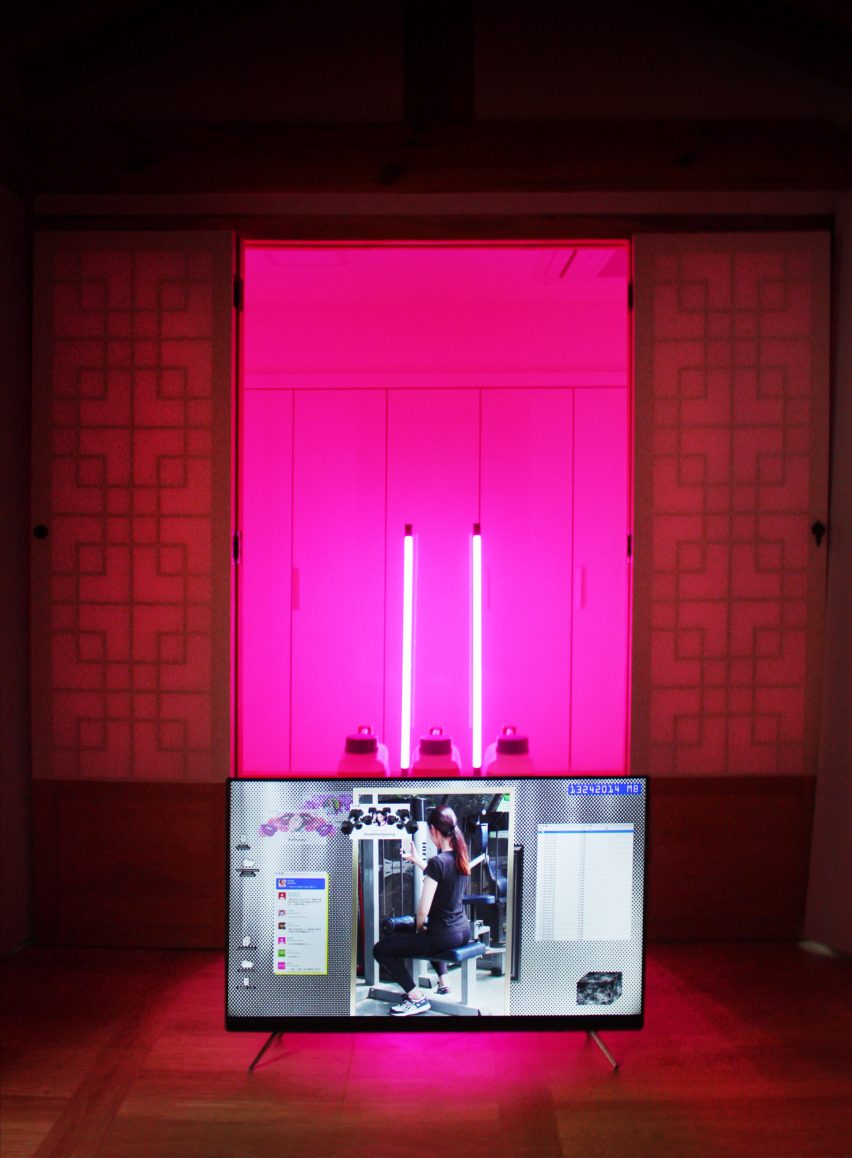
The ceremony is made up of two stages: the virtual and the physical.
Firstly, a virtual afterlife portal is opened, where friends, family and followers are invited to contribute digital memories. With a 3.0 terabyte-per-second connection speed, it is able to process and sort thousands of videos, photos, comments and files.
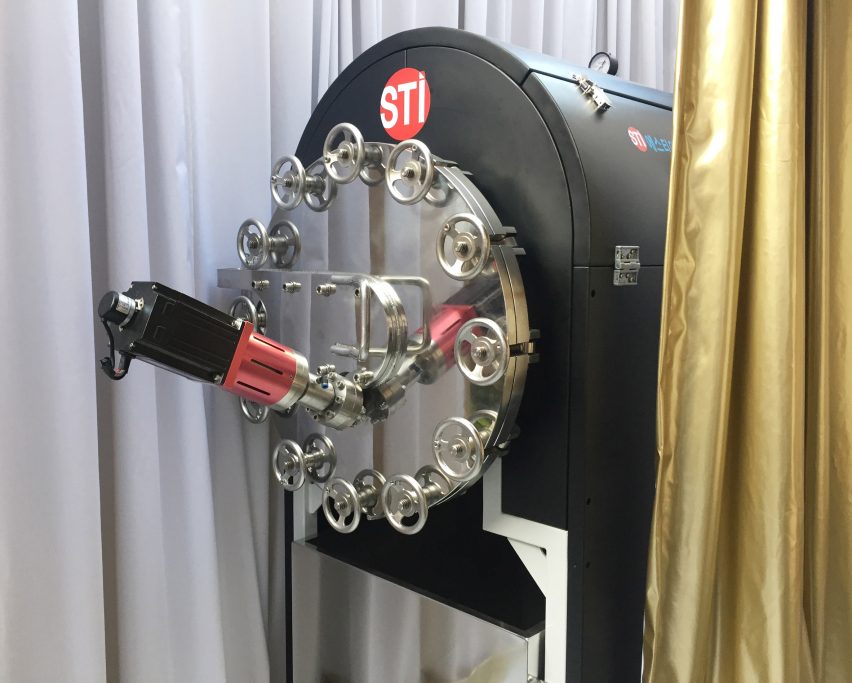
Secondly, the body of the deceased is placed inside a bespoke alkaline-hydrolysis fluid cremation system and transformed into a fertile liquid, which is used to feed a flower garden.
Floral arrangements from the garden can be used to decorate a ceremonial space-frame displayed on the roof, along with memorial flags.
As an additional benefit, the heat generated in the liquifying process can be used to sustainably warm the building.
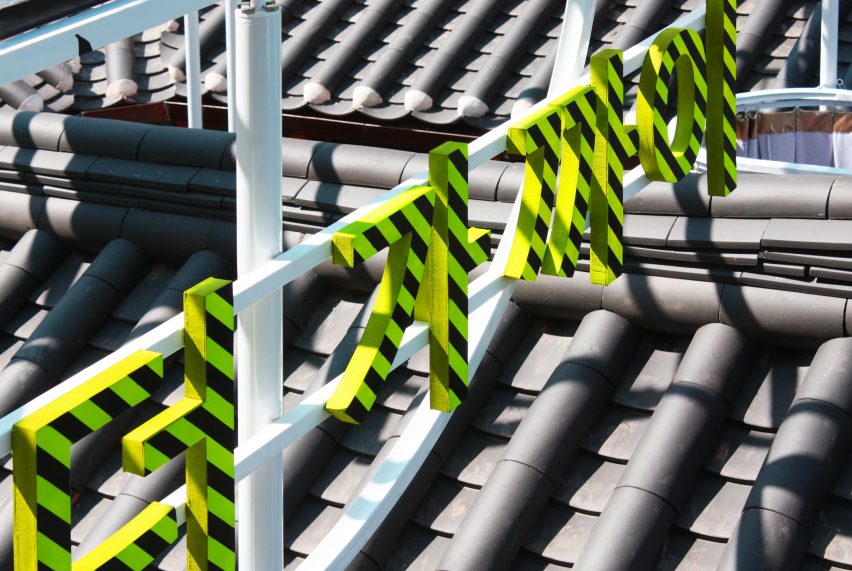
The process wouldn't demand land in the same way as a burial does and is more eco-friendly than cremation. But it also creates new ways of memorialising the deceased.
"New technologies present unique opportunities for the production of value – material, ceremonial, and ecological – that shouldn't be ignored," said Bragado.
"We need new, cleaner, socially productive disposition alternatives that integrate easily with the urban and digital realms."
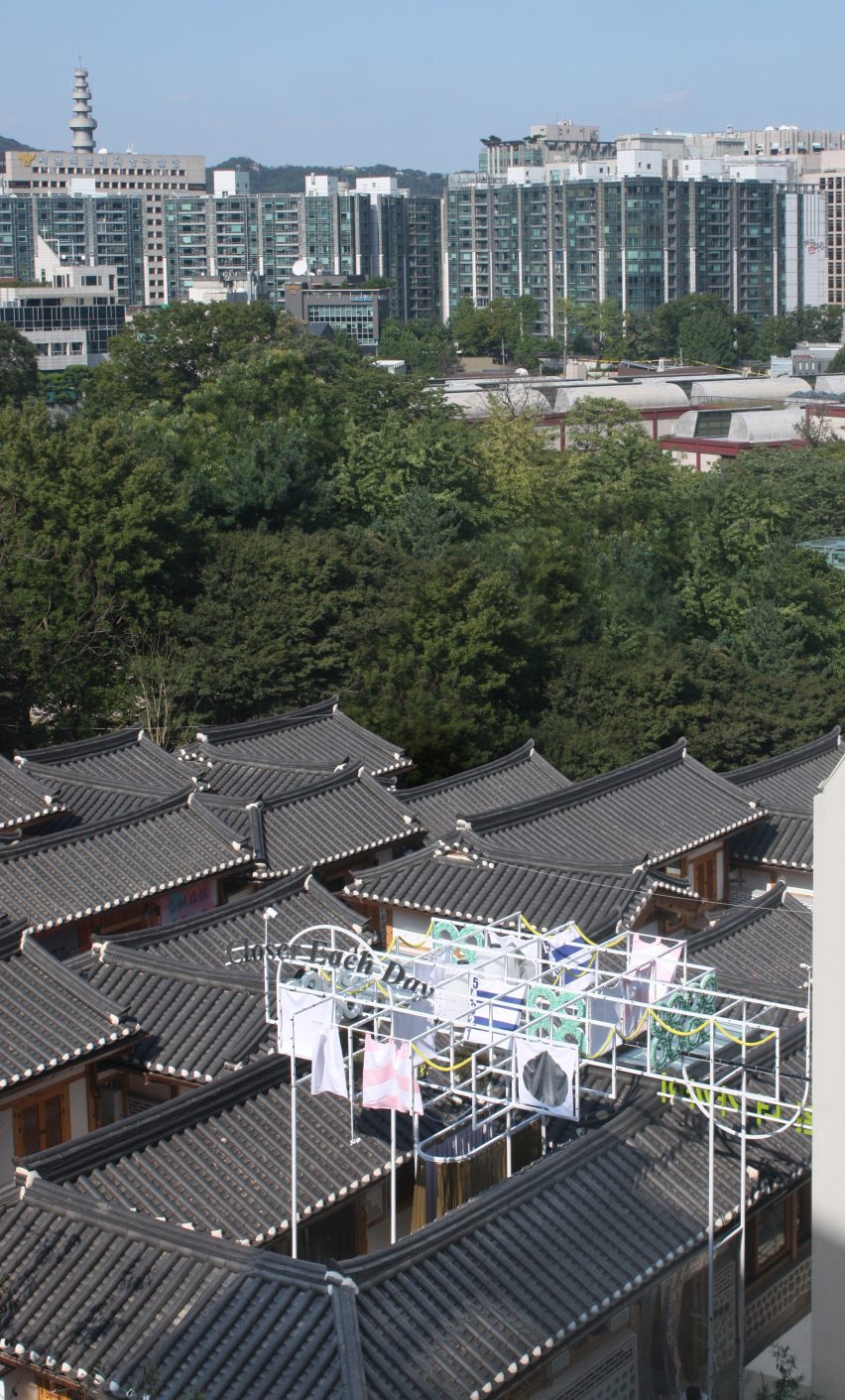
Bragado is from Spain, while Gertler originates from Canada. Having met while studying at Princeton University, the pair initially developed a concept for an alkaline-hydrolysis fluid cremation system.
This idea, which they presented at the Istanbul Design Biennial in 2016, later evolved into a more comprehensive package.
The project was always designed with the South Korean capital in mind. Like other Asian cities, Seoul has a scarcity of available cemetery land and only one cremation facility, even though it is home to 10 million people.
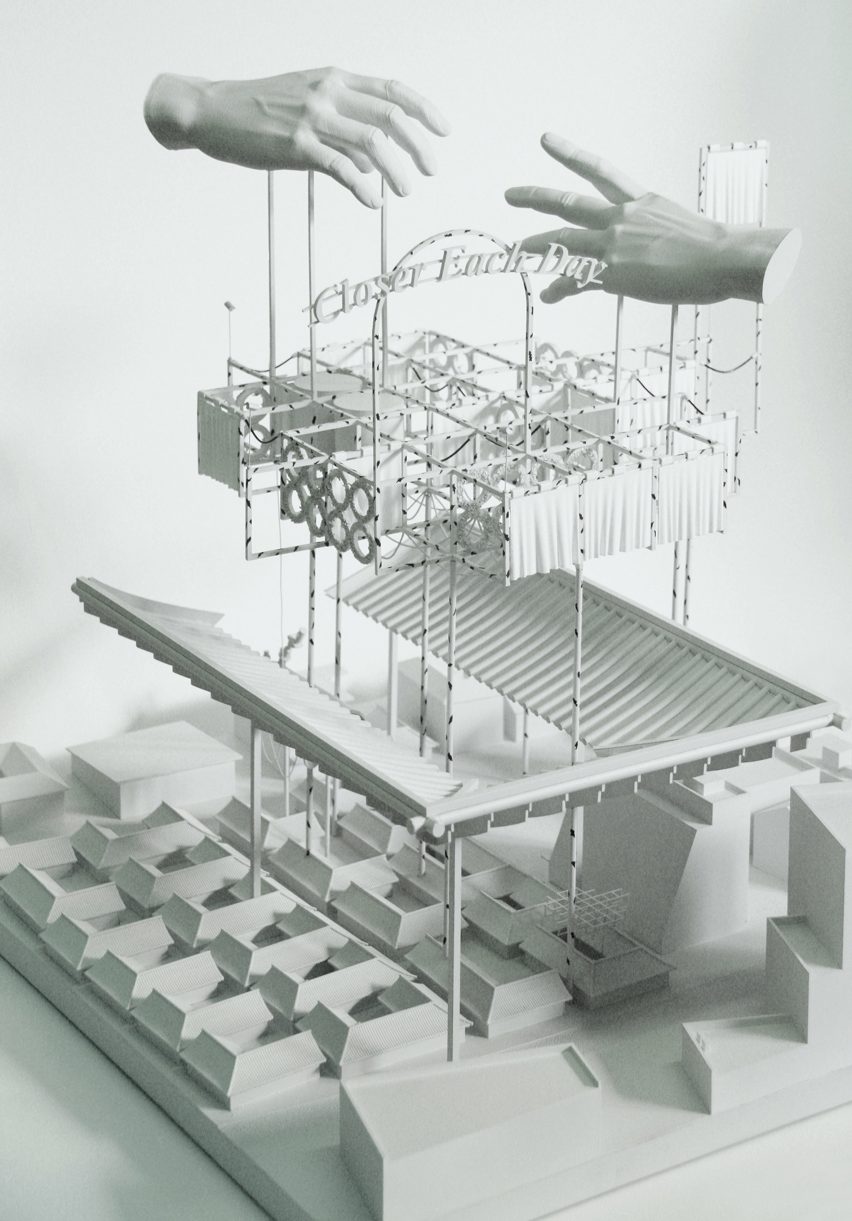
"It is urgent to start a dialogue on this issue in Seoul, where a shortage of facilities and burial space has created a crisis in how we manage death in the city," said Jihoi Lee, who curated the Seoul Biennale installation.
"We can use this crisis to probe death's productive potential in daily urban life," she added.
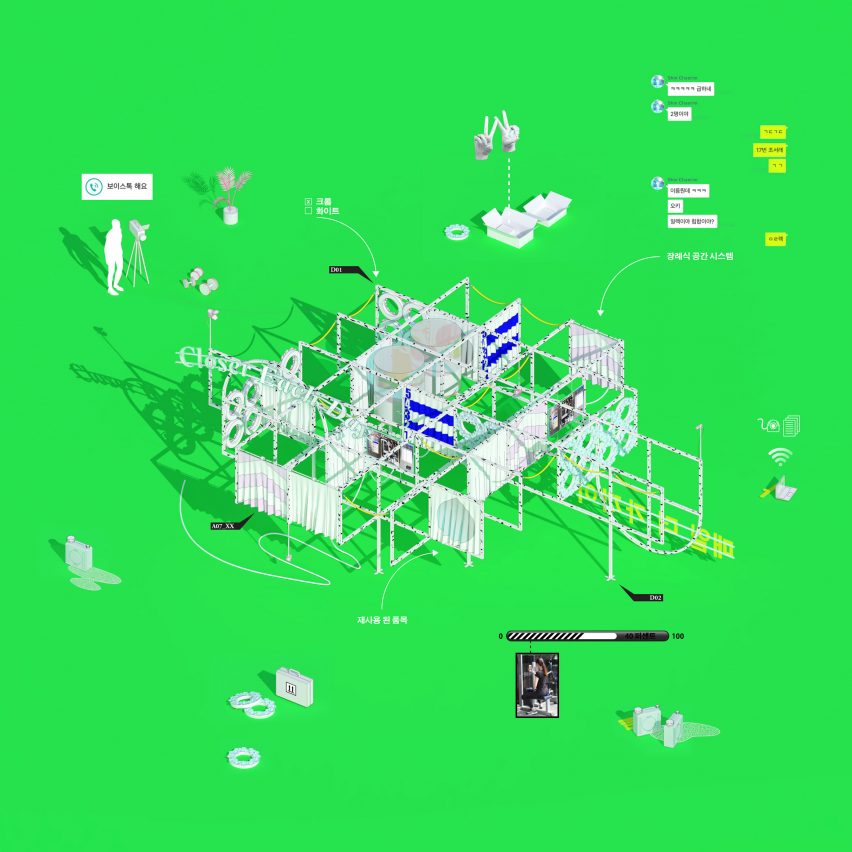
Bragado and Gertler are not the only designers exploring how death rituals could be redesigned for the 21st century.
Shaina Garfield has created a biodegradable shroud, as an alternative to the coffin, while Anna Citelli and Raoul Bretzel have developed an egg-shaped burial pod with a tree on top.
Meanwhile architecture firm Olson Kundig has designed an after-death facility for Seattle where human bodies will be composted and turned into soil.
Photography is by Common Accounts. Video is by Andrew Gilbride.
Project credits:
Design: Common Accounts
Lead architects: Igor Bragado, Miles Gertler
Curator: Jihoi Lee
Alkaline hydrolysis technology consultant: STI Korea
Junior architect: Nowk Choe